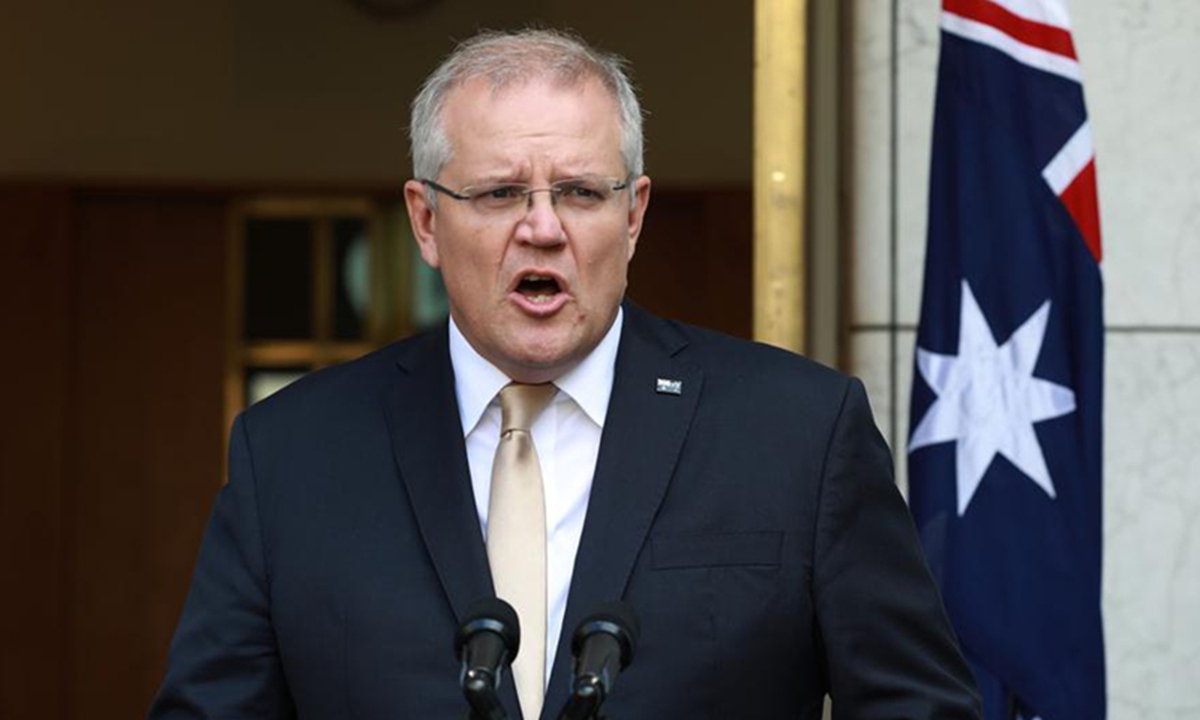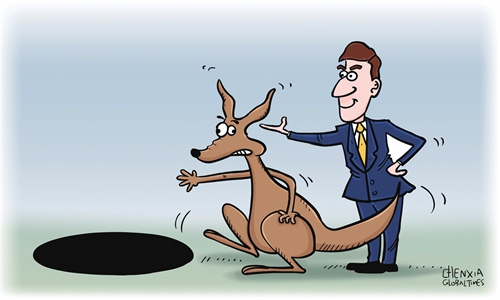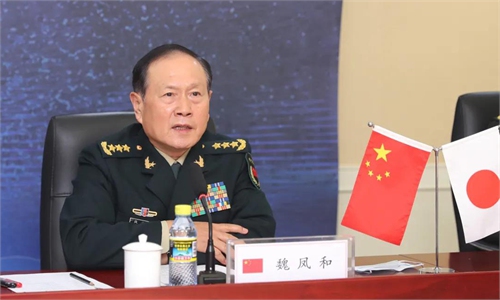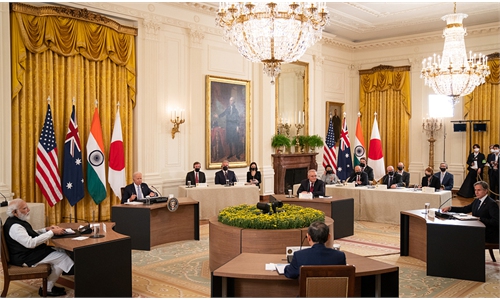Japan-Australia defense, security treaty will inflame regional tensions
China warns of countermeasures if bottom line touched

Scott Morrison Photo:Xinhua
Australia and Japan will sign a "historic" treaty to deepen defense and security cooperation, a move that hypes the "China threat" and helps the US rope in military alliances to make a "NATO in the Pacific region" to contain China. Analysts said the Pacific Ocean should not become the ocean for some countries to make waves and any attempt to bring harm to China's territory will meet with firm countermeasures.
Australian Prime Minister Scott Morrison said that Japan and Australia are set to sign the Reciprocal Access Agreement (RAA), which will for the first time set out a framework to beef up defense and security cooperation at a virtual summit between him and Japanese Prime Minister Fumio Kishida on Thursday, Reuters reported on Wednesday.
Kishida was scheduled to visit Australia and the US this week but cancelled the trips due to a surge in COVID-19 cases. He will have a virtual meeting with Morrison instead on Thursday.
Many Japanese and Australian media described the treaty as "historic" as it marks a step closer in a relationship that is often referred to as a "quasi alliance" and the signing of the agreement will "underpin greater and more complex practical engagement between the Australian Defense Force and the Japanese Self-Defense Force," the Japan Times reported.
"The agreement, once signed, will deepen the military relations between the two countries with the US as previously Japan and Australia only had a shallow level of military cooperation under the Quad mechanism. The agreement also gives Japan an opportunity to join the Quad and Quad's military resources, weapons sales, exchanges of military technologies from Australia, the US and the UK will be open to Japan," Song Zhongping, a Chinese military expert and TV commentator, told the Global Times.
There is no doubt that the agreement is targeting China, Song said. For example, under the agreement, Japan and Australia could build a joint maritime communication mechanism targeting China and as both have a large number of antisubmarine patrol aircraft, they could conduct activities from the Malacca Strait to the Miyako Strait in the Indo-Pacific.
The US is military allies with Australia and New Zealand, and also has a military alliance with Japan. The US is attempting to link the two military alliances together to have the effect of "one plus one is bigger than two," forming another NATO in the Asia-Pacific region, Song said.
Chinese Foreign Ministry spokesperson Wang Wenbin told the press conference on Wednesday that the cooperation between countries should help boost understanding and trust in the region, not target or damage the interests of a third party.
The Pacific Ocean is big enough to have regional countries enjoying common development and peace and stability of the Pacific also depends on the joint efforts made by regional countries, Wang said, noting that "We hope the Pacific Ocean can be the ocean for peace and not the ocean for someone to make waves."
Analysts said the agreement, which has greatly promoted Japan and Australia's military alliance, also reflects Japan's calculations on getting rid of the status of "abnormal" state and Australia's willingness to win allies over for the US.
The RAA is one of the careful peripheral breakthroughs Japan has been making to prepare for revising its constitution, following the act of lifting of the ban on collective self-defense in 2016, Zhou Yongsheng, a professor in the Institute of International Relations at China Foreign Affairs University, told the Global Times.
"Unlike the Quad which cannot enable frequent mutual military visits, the RAA will expand forces of Japan to the South Pacific region and promote the full coverage of Japan's Indo-Pacific Strategy," Zhou said.
Japanese Chief Cabinet Secretary Hirokazu Matsuno was cited by the Japan Times in a report on the RAA as saying that "We share with Australia the basic values of freedom and democracy" and during their virtual meeting on Thursday, Kishida planned to discuss matters of mutual concern, including national security, the economy and regional affairs, in a bid to strengthen bilateral ties and cooperation toward a free and open Indo-Pacific.
Chen Hong, a professor and director of the Australian Studies Center at East China Normal University, said that from Morrison visiting Japan under COVID-19, the $717 million defense deal with South Korea to the security cooperation treaty with Japan, Australia is playing a greater role in winning regional allies over for the US, especially Japan and South Korea, in its Indo-Pacific Strategy.
Chen noted that by signing the RAA, the strategic and military cooperation between Japan and Australia is becoming more aggressive, which will increase regional tensions and possibilities of military confrontations, bringing danger and instability to the region.
The expert also noted that under the Morrison government, China-Australia relations had been in the lowest ebb while Australia is still hyping the "China threat" and taking the wrong strategy of attacking China, which could further inflame tensions.
Peter Jennings, the executive director of the Australian Strategic Policy Institute, an anti-China hawk think tank in Australia, said in an article released on Wednesday that with the specifics agreed on how Japan and Australia can access to each other's military facilities, secure port access, landing rights, logistics support, security arrangements and legal regimes, there will be an expansion of practical military cooperation. And the deeper defense ties also send a strong message to China.
Song noted that the US, Australia and Japan are taking a chance that no matter how much trouble they have made, no attack would be brought to their own territory, which is totally wrong, Song said. They should know that if they touch China's bottom line - either on the question of the island of Taiwan or bring harm to China's territory - countermeasures will follow.




